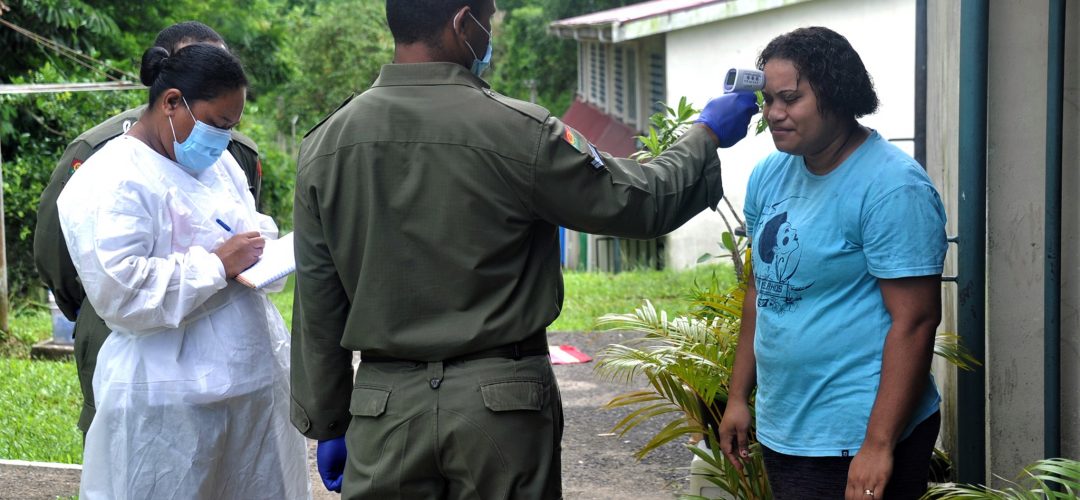‘Humanitarian pathway’ vital response to COVID-19 pandemic

Ministry of Health teams are working with the military and police, conducting house to house checks in the Suva containment area. Picture: Fijian Government FB page
By JOSEFA BABITU
Leaders of Pacific Islands Forum have agreed to establish a ‘humanitarian pathway’ to respond to the novel coronavirus pandemic.
This comes after the leaders invoked the Biketawa Declaration that will enable the provision of medical and humanitarian assistance from regional, international and development partners in a timely, safe, effective and equitable manner.
In a recent statement, Pacific Islands Forum chairman and Prime Minister of Tuvalu Kausea Natano said COVID-19 posed a real and extreme danger to the health and security of the Pacific people.
“The COVID-19 pandemic is a global health emergency of unprecedented scale. It is with this agreement by our leaders to invoke the Biketawa Declaration that we gather, albeit virtually, to consider the proposal for a Pacific Humanitarian Pathway for COVID-19,” he said.
“The Biketawa Declaration recognises that in time of crises, all actions must be taken on the basis that all members of the forum are part of the Pacific Islands extended family. This, I believe, is the Pacific way.”
PIF foreign ministers are expected to overlook the response with the support of a Regional Taskforce of Forum Members, the Pacific Community (SPC), the Forum Secretariat and relevant CROP agencies, the World Health Organization (WHO) and other relevant UN agencies, and regional law enforcement and legal agencies.
Meanwhile during the mission briefing on COVID-19 yesterday, WHO director general Dr Tedros Ghebreyesus said almost two million cases of COVID-19 had been reported to WHO from around the world, and more than 123,000 deaths.
“That’s more than 40,000 more deaths since last week. This is an alarming and tragic increase,” he said.
“Our new strategy update outlines six factors for countries as they consider lifting restrictions. First, that transmission is controlled; Second, that health system capacities are in place to detect, test, isolate and treat every case and trace every contact; Third, that outbreak risks are minimized in special settings like health facilities and nursing homes; Fourth, that preventive measures are in place in workplaces, schools and other places where it’s essential for people to go; Fifth, that importation risks can be managed; And sixth, that communities are fully educated, engaged and empowered to adjust to the ‘new norm’.
“At the same time, the virus is moving into countries and communities where many people live in overcrowded conditions, and physical distancing is nearly impossible.”
Dr Ghebreyesus said COVID-19 magnified existing health inequalities and governments must consider that for some countries and communities, stay-at-home orders may not be practical, and may even cause unintended harm.
He said millions of people around the world must work every day to put food on the table and could not stay at home for long periods of time without assistance.
WHO was also concerned by some media reports of violence erupting as a result of physical distancing restrictions.
Reports of an increasing trend in domestic violence linked to the stay-at-home measures were also alarming for WHO.
More WHO reports on COVID-19 can be found on the official WHO website – https://www.who.int/
*Josefa Babitu is a second-year journalism student at USP’s Laucala campus. He is also a student reporter for Wansolwara, USP Journalism’s print and online student training publications.










